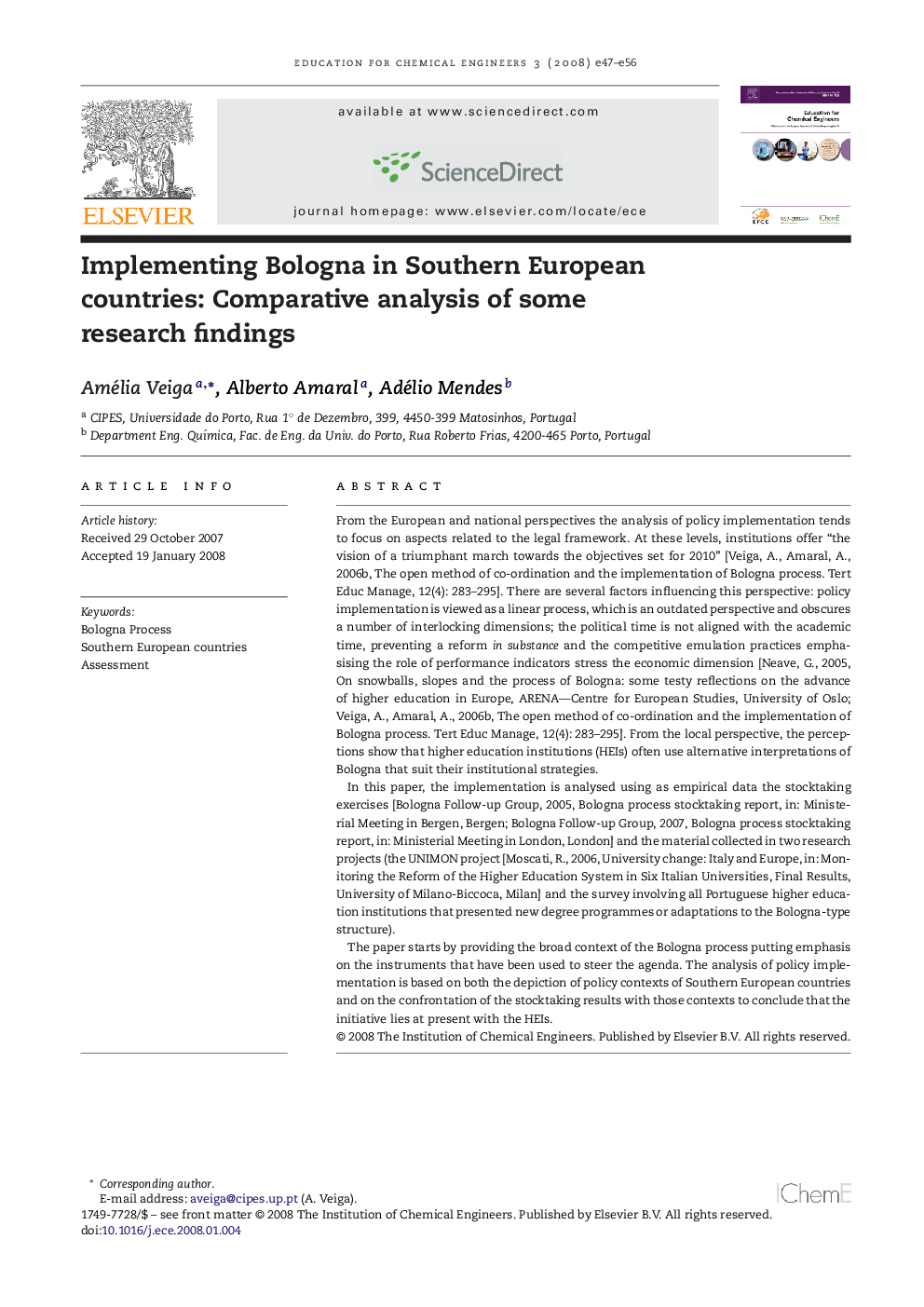| Article ID | Journal | Published Year | Pages | File Type |
|---|---|---|---|---|
| 178583 | Education for Chemical Engineers | 2008 | 10 Pages |
From the European and national perspectives the analysis of policy implementation tends to focus on aspects related to the legal framework. At these levels, institutions offer “the vision of a triumphant march towards the objectives set for 2010” [Veiga, A., Amaral, A., 2006b, The open method of co-ordination and the implementation of Bologna process. Tert Educ Manage, 12(4): 283–295]. There are several factors influencing this perspective: policy implementation is viewed as a linear process, which is an outdated perspective and obscures a number of interlocking dimensions; the political time is not aligned with the academic time, preventing a reform in substance and the competitive emulation practices emphasising the role of performance indicators stress the economic dimension [Neave, G., 2005, On snowballs, slopes and the process of Bologna: some testy reflections on the advance of higher education in Europe, ARENA—Centre for European Studies, University of Oslo; Veiga, A., Amaral, A., 2006b, The open method of co-ordination and the implementation of Bologna process. Tert Educ Manage, 12(4): 283–295]. From the local perspective, the perceptions show that higher education institutions (HEIs) often use alternative interpretations of Bologna that suit their institutional strategies.In this paper, the implementation is analysed using as empirical data the stocktaking exercises [Bologna Follow-up Group, 2005, Bologna process stocktaking report, in: Ministerial Meeting in Bergen, Bergen; Bologna Follow-up Group, 2007, Bologna process stocktaking report, in: Ministerial Meeting in London, London] and the material collected in two research projects (the UNIMON project [Moscati, R., 2006, University change: Italy and Europe, in: Monitoring the Reform of the Higher Education System in Six Italian Universities, Final Results, University of Milano-Biccoca, Milan] and the survey involving all Portuguese higher education institutions that presented new degree programmes or adaptations to the Bologna-type structure).The paper starts by providing the broad context of the Bologna process putting emphasis on the instruments that have been used to steer the agenda. The analysis of policy implementation is based on both the depiction of policy contexts of Southern European countries and on the confrontation of the stocktaking results with those contexts to conclude that the initiative lies at present with the HEIs.
